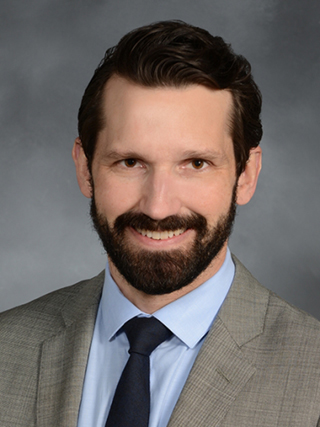How to Reduce Risk of Heart Failure
A cardiologist explains what to know about heart failure, including symptoms, how to reduce your risk, and the latest treatment options.

Heart failure — when your heart fails to pump blood as it should — is a serious condition that is on the rise in the United States, with 6.2 million Americans currently living with heart failure, according to the Centers for Disease Control and Prevention.
The death rate from heart failure rose nearly 21% between 2011 and 2017, according to a study in JAMA Cardiology, and is likely to keep rising.
Heart failure is a diagnosis that needs to be taken seriously and requires aggressive treatment, but there are steps you can take to reduce your risk, and more treatment options available than ever before, says Dr. David Majure, medical director of the Heart Transplant Service at NewYork-Presbyterian/Weill Cornell Medical Center.
“The goals of care should not be to simply manage the condition, but to improve as much as possible,” says Dr. Majure, who is also an assistant professor of medicine at Weill Cornell Medicine. “By treating heart failure aggressively and taking preventative measures, we can help patients get better.”
Recently, a study of women over the age of 60 found that walking 3,600 steps a day is associated with a 26 percent lower risk of developing heart failure.
“This demonstrates the benefits of even modest activity and the detriment of sedentary activity to cardiovascular risk,” Dr. Majure says.
Health Matters spoke with Dr. Majure to understand the signs of heart failure, ways to reduce the risk, and how best to treat it.

Dr. David Majure
What is heart failure?
Dr. Majure: Heart failure means your heart is not pumping blood effectively enough to meet your body’s needs. The heart delivers blood and oxygen throughout our bodies so that our organs, muscles, and cells can perform their essential functions. We need a functioning heart that can move blood through our bodies efficiently in order to live.
The heart can fail either by not relaxing well enough — what is known as diastolic heart failure, which prevents blood from entering the heart properly due to stiffness in the heart wall; or by not squeezing enough to pump the blood out and into the rest of the body, which is called systolic heart failure. People can suffer from relaxation and squeezing problems at the same time.
What are the symptoms of heart failure?
The most common symptoms of heart failure are shortness of breath with exertion or when lying down, fatigue, abdominal swelling, and swelling of the lower legs. Some people might find themselves having to sleep on extra pillows to help them breathe better, because fluid may be backed up in their lungs. As heart failure gets more advanced, these symptoms tend to worsen.
How do you know if you are in heart failure, and when should you reach out to your doctor?
Heart failure is a spectrum, and symptoms can range from mild to severe. Sometimes people might ignore symptoms that are crucial warning signs, like shortness of breath. The important thing is that we identify symptoms of heart failure early on, take it seriously, and treat it aggressively to prevent the illness from progressing.
You should always let your doctor know if you have new symptoms, or if symptoms grow worse. A diagnosis of heart failure will typically include a physical exam, bloodwork, and sometimes a chest X-ray and echocardiogram. Once heart failure is diagnosed, the treatment needs to be aggressive, thorough, and consistent.
What causes heart failure?
Common causes of heart failure are high blood pressure (hypertension) and coronary artery disease. These often coexist.
Coronary artery disease develops when arteries that supply blood to the heart become diseased, leading to blockages that can cause a heart attack, which scars the heart muscle. If the heart muscle is scarred, it can’t squeeze appropriately, and that can lead to heart failure.
Blood pressure is the force of blood pushing against the walls of your arteries, and high blood pressure can damage the arteries and increase the workload of the heart and blood vessels. As time goes on, the heart may start to fail and not pump as effectively as it did in the past.
Who is most at risk of heart failure?
Some people are more susceptible to high blood pressure at a very young age. For instance, we see a large proportion of young men of African descent who have very high blood pressure, and that can lead to heart failure at a very young age. Obesity and diabetes are also risk factors because of their association with high blood pressure.
Genetic factors play a role as well. If there is a family history of hypertension, heart attack, or diabetes, a person can be at risk for developing heart failure.
What are treatment options for heart failure?
Treatment depends on the type of heart failure a person has. Whether a person has systolic or diastolic heart failure, there are medications and therapies that can be used to treat each person’s individual case. However, most of the therapies we have that can make people live longer are for the treatment of systolic heart failure. These medicines work by decreasing the impact of hormonal stimuli that can hurt or damage the heart.
We take heart failure very seriously and treat it aggressively. We not only want to improve a patient’s symptoms, we want to improve their heart function and reduce their risk of dying. But despite our best efforts, there are times when people need additional therapies like a heart transplant or left ventricular assist device (LVAD), which is a mechanical pump that assists the heart in pumping blood to the body.
What can people do to prevent heart failure?
“Controlling risk factors that are associated with the development of heart failure is very important and proven to prevent the onset of heart failure,” says Dr. Majure. “There are simple things we can all do to help keep our hearts healthy.”
Steps to Reduce Risk of Heart Failure
- Take control of your blood pressure. One way to do this is salt reduction. “There is so much salt in many of the foods that we eat in the U.S., far more than we should be consuming,” says Dr. Majure. “Over a lifetime, high salt consumption leads to high blood pressure.” The American Heart Association recommends no more than a teaspoon of salt a day and, ideally, less than two-thirds of a teaspoon a day for most adults, especially those with high blood pressure.
- Get regular health checkups. See your doctor annually for a blood pressure evaluation, cholesterol assessment, and diabetes assessment. This is important not just for your heart but for your overall health.
- Know your family history. If heart failure or heart disease runs in your family, tell your doctor. They may want to monitor your heart more frequently, or they may refer you to a cardiologist.
- Don’t smoke. And if you do smoke, quit. Smoking cigarettes can permanently damage your heart and blood vessels and lead to heart disease.
- Maintain a healthy weight. This involves eating a balanced diet rich in green vegetables, fruits, legumes, and nuts, and minimizing meat consumption, especially red meats. “The closer you are to a plant-based diet, the better off you are in the long run, not just for your heart but for your entire body,” says Dr. Majure.
- Exercise regularly. Aim for about 30 to 40 minutes of moderate aerobic exercise each day. “Consistent exercise can produce enormous benefits, not only in terms of reduction of cardiovascular risk, but also for overall mental and physical well-being,” Dr. Majure says. “Even taking modest attempts to sit less and move more can reduce risk of heart failure.”
- Take steps to reduce stress. Chronic stress can lead to unhealthy habits like overeating and smoking, which, over time, can damage the heart. Getting enough sleep, exercising, and having a support system to lean on can help minimize stress.
Heart failure is a fatal condition and requires an individualized approach. As soon as someone begins experiencing symptoms, they need to be evaluated immediately so that they can begin treatment.
Additional Resources
Learn more about how to promote heart health.
David T. Majure, M.D., M.P.H., is the director of the Heart Transplant Service at NewYork-Presbyterian/Weill Cornell Medical Center and an assistant professor of medicine at Weill Cornell Medicine. He specializes in the care of patients with advanced heart failure, patients who have a heart transplant or require a ventricular assist device (LVAD), and patients with pulmonary hypertension.

